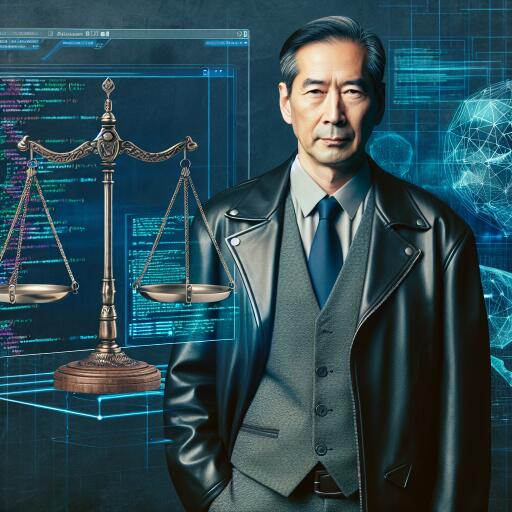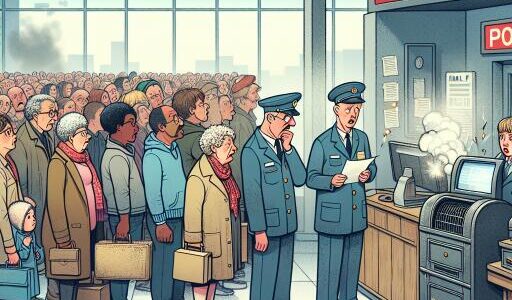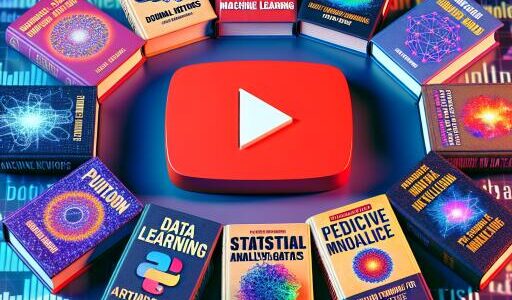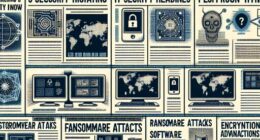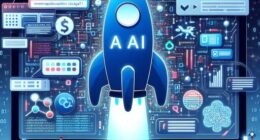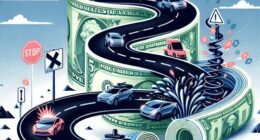Nvidia CEO Jensen Huang’s Bold Vision: AI to Revolutionize Coding’s Future
As artificial intelligence (AI) continues to evolve, its impact on various industries sparks a series of debates about its implications for the future of work, particularly in the realm of coding and software development. One such provocative viewpoint comes from Nvidia CEO Jensen Huang, who recently suggested, at the World Government Summit in Dubai, that the time is ripe to reconsider the role of coding in education and, more broadly, in future technological advancements.
Is Coding Knowledge Becoming Obsolete?
Huang’s perspective is both radical and reflective of the rapid advancements in AI technology. He proposed that we are entering an era where traditional programming languages, such as Java and C++, could become obsolete. Instead of humans grappling with complex coding syntax, AI could interpret instructions directly from natural human language. The implication here is profound—AI could democratize programming, turning everyone into a potential coder without the need for specialized training.
John Carmack, a luminary in the field of virtual reality and the former CTO of Oculus VR, echoed Huang’s sentiments in a discussion on the future of coding. He emphasized that the inherent value of coding has never been in the act itself but in the problem-solving skills it fosters. With AI potentially taking over the intricacies of coding, the focus could shift more towards developing innovative solutions rather than on mastering programming languages.
The Debate: AI in Coding’s Future
This visionary outlook has not been without its critics. Many argue that coding is an essential skill that teaches much more than how to communicate with machines. Learning to code is seen as a critical pathway to developing logical thinking, problem-solving abilities, and a deep understanding of how the digital world operates. These skills are invaluable, extending beyond the scope of automated tasks that AI can perform.
The debate hinges on a crucial question: Can the essential human qualities of innovation and critical thinking be maintained or even augmented in a world where AI takes on a greater role in coding?
The potential for AI to make programming more accessible could have a profound impact on inclusivity within the tech industry. By lowering barriers related to education, background, and skill level, we could witness a more diverse group of people contributing to tech innovation. This shift could democratize the field, fostering a richer, more varied tech landscape.
AI Literacy vs. Coding Proficiency
While the conversation around AI’s role in the future of coding raises valid points, it’s important to strike a balance. Enhancing AI literacy and integrating it into educational curricula could form part of this equilibrium, ensuring that the workforce of tomorrow is proficient in leveraging AI without completely sidelining the foundational skills of coding.
Accessibility and inclusion stand to benefit significantly from AI’s evolution. As programming becomes more approachable through AI’s capabilities, the tech industry could see a significant increase in diversity and innovation. The key, however, lies in safeguarding ethical standards, quality, and reliability, which underscores the vital need for human oversight in AI-generated code.
Conclusion: A Collaborative Future Between Humans and AI
Looking ahead, the discussion ignited by Jensen Huang touches upon a future where AI and human collaboration in coding could open new doors to innovation. While it’s unlikely that AI will completely replace human coders in the near future, it’s evident that AI will transform the nature of coding work. Professionals may find themselves working alongside AI, leveraging its capabilities to enhance efficiency and creativity.
As we stand on the cusp of this transformative era, the tech industry, educators, and policymakers must navigate the challenges and opportunities that AI presents. By fostering a collaborative approach that leverages AI’s strengths while nurturing human creativity and ethical standards, we can ensure a future where technology continues to enhance our lives without compromising the skills that make us uniquely human.
Further Reading
- Artificial Intelligence And Its Applications In The Real World?
- Here’s How an Artificial Intelligence Works

